When politics and music smash into each other, it’s rarely quiet. Sparks fly, headlines explode, and audiences everywhere lean in to watch the fallout. That’s exactly what happened this week when Canadian crooner Michael Bublé—normally known for silky love songs and holiday ballads—suddenly found himself in the middle of a political firestorm with conservative figure Karoline Leavitt. And this wasn’t just a polite disagreement; it was an all-out clash of identity, influence, and who gets the right to define “truth.”
The Accusation That Lit the Fuse
Leavitt, never one to hold back her fiery rhetoric, accused Bublé of using his platform to silence her perspective. In her eyes, his fame and influence in entertainment made it impossible for dissenting political voices to be heard. It was a bold accusation—essentially saying that music itself had become a weapon against political speech.

Most artists might have shrugged it off. But Michael Bublé is not most artists. For decades, he has built a career not just on smooth vocals but on an image of authenticity—an old-school crooner who never chased trends and never let anyone else define him. So when Leavitt tried to suggest he was shutting people down, he came out swinging.
Bublé’s Viral Clapback
“You don’t have the right to rewrite WHO I AM, Karoline,” Bublé shot back in a statement that went viral within hours. He didn’t mince words. He doubled down: “My songs have spoken the truth long before you ever showed up!”
With that one line, Bublé didn’t just defend himself—he drew a battle line. His music, he insisted, is not political propaganda but a reflection of his own lived experiences and convictions. To suggest otherwise, he argued, wasn’t just a cheap shot at his career, it was an insult to his integrity.
Fans Rally Behind the Music
The reaction was instant and divided. Bublé’s fans, who have adored his heartfelt ballads like Home and Haven’t Met You Yet, flooded social media with praise. To them, his music has always been more than entertainment; it’s a vulnerable, emotional expression of who he is. They argued that politicians have no business demanding artists justify their truth or turn their art into political battlegrounds.
One fan wrote, “Michael’s music is about love, loss, and hope. If you can’t handle that, maybe politics isn’t the problem—it’s you.”

Leavitt Strikes Back
But Leavitt’s supporters weren’t about to let the singer have the last word. They reframed the clash as proof of their larger argument: that celebrity culture wields outsized influence and often drowns out political outsiders. For them, Bublé’s refusal to entertain Leavitt’s criticism actually proved her point—that entertainers control too much of the narrative and use their cultural power to sideline dissenting voices.
What started as a spat between a singer and a politician quickly escalated into a cultural proxy war: art versus politics, sincerity versus rhetoric, melody versus megaphone.
Why This Feud Feels So Different
Part of what makes this story so compelling is the asymmetry of the fight. Leavitt operates in politics, where confrontation is survival. Bublé operates in music, where his contract with fans is built on trust and authenticity. When she accused him of “silencing” her, she wasn’t just challenging his words—she was challenging the foundation of his artistry.
This clash felt lopsided not because one side was weaker, but because the weapons were different. Leavitt spoke the language of politics: debate, ideology, confrontation. Bublé spoke the language of art: emotion, sincerity, and personal truth. Neither side was willing to translate, which only made the collision more explosive.
A Bigger Conversation About “Truth”
Cultural critics quickly jumped in, noting that the controversy tapped into a much bigger question: who gets to define truth in today’s world? Is truth hammered out through policy and argument, as politics insists? Or is it something lived, felt, and expressed through creativity, as art suggests?
Bublé’s defiance underscored that tension. His refusal to stay quiet suggested that even artists who normally avoid political brawls are feeling cornered in an era where every voice, amplified by digital platforms, is forced to take a stand.
Authenticity on Trial
Ironically, Bublé’s entire career has been built on authenticity. From the beginning, he resisted pressure to conform to fleeting pop trends, instead dedicating himself to jazz standards, swing rhythms, and timeless ballads. That’s why millions around the world fell in love with him: he never pretended to be someone he wasn’t.
So for a political figure to question that authenticity was, for him, crossing a line he simply couldn’t ignore. This wasn’t about partisan squabbles—it was about identity, about refusing to let anyone else dictate who he is or what his music represents.

The Fallout
As the dust settles, the real question is less about “who won” and more about what this confrontation exposes. The lines between cultural and political spheres are blurrier than ever. Entertainers are increasingly expected to comment on politics, while politicians step into celebrity culture to build their brands.
The Bublé-Leavitt feud forces us to confront uncomfortable questions: Where does influence end? Who controls the narrative? And in an age where authenticity is currency, what happens when one person accuses another of being a fraud?
The Last Word
For now, Michael Bublé’s declaration echoes louder than any campaign slogan: “You don’t have the right to rewrite WHO I AM.” It wasn’t just a defense of self—it was a declaration of principle, one that cut across music, politics, and culture.
Whether you see it as a singer standing up for his art, or as a celebrity flexing cultural power, the clash reminds us that truth is not just an abstract concept. It’s personal. It’s emotional. And sometimes, it’s as intimate as a song.
News
 BREAKING NEWS—JUST 30 MINUTES AGO: Michael Jordan stunned the world with explosive remarks about the shocking murder of Charlie Kirk, and what he allegedly said is sending shockwaves across sports and media.
BREAKING NEWS—JUST 30 MINUTES AGO: Michael Jordan stunned the world with explosive remarks about the shocking murder of Charlie Kirk, and what he allegedly said is sending shockwaves across sports and media.
Breaking News: Michael Jordan’s Explosive Comments on the Charlie Kirk Murder Spark Global Shockwaves September 25, 2025 — Washington, D.C….
 HE’S NOT GOING ANYWHERE: Greg Gutfeld just inked a blockbuster new deal with Fox News Media, silencing rumors of an exit and sending shockwaves through late-night TV.
HE’S NOT GOING ANYWHERE: Greg Gutfeld just inked a blockbuster new deal with Fox News Media, silencing rumors of an exit and sending shockwaves through late-night TV.
“Late-Night Shocker”: Greg Gutfeld’s Mega-Million Fox Deal and the Dark Secret That Could Rewrite Television Washington, DC – September 26,…
 LATE-NIGHT EARTHQUAKE: Jimmy Kimmel just detonated a feud with ABC—the very network that made him a household name—and insiders whisper CBS is already circling.
LATE-NIGHT EARTHQUAKE: Jimmy Kimmel just detonated a feud with ABC—the very network that made him a household name—and insiders whisper CBS is already circling.
Jimmy Kimmel Declares War on ABC — and Teases a Shocking CBS Move That Could Reshape Late-Night TV When ABC…
 WHOOPI SLAMS THE TABLE, BLAKE SHELTON EXPLODES: What began as a routine segment on The View turned into a live-TV battlefield. Whoopi yelled “STOP THE MUSIC—IT’S CRAZY!” as chaos erupted, but Blake fired back with a blistering tirade that left the hosts frozen.
WHOOPI SLAMS THE TABLE, BLAKE SHELTON EXPLODES: What began as a routine segment on The View turned into a live-TV battlefield. Whoopi yelled “STOP THE MUSIC—IT’S CRAZY!” as chaos erupted, but Blake fired back with a blistering tirade that left the hosts frozen.
Blake Shelton’s Explosive Clash on The View: Chaos, Defiance, and a Moment That Shook Daytime TV It began like any…
 DISNEY REVERSES COURSE—BUT THE DAMAGE IS DONE: Even after the media giant lifted its controversial ban, Jimmy Kimmel refused to bow or apologize, daring critics to come after him.
DISNEY REVERSES COURSE—BUT THE DAMAGE IS DONE: Even after the media giant lifted its controversial ban, Jimmy Kimmel refused to bow or apologize, daring critics to come after him.
Jimmy Kimmel Defiant After Disney’s Reversal, as Kelly Clarkson’s 15-Word Remark Stuns Fans When Disney quietly reversed its suspension of…
 WHEN LATE-NIGHT RETURNED, NOBODY EXPECTED THIS TWIST: Jimmy Kimmel’s comeback was already making headlines, but Kelly Clarkson hijacked the spotlight with a surprise message that fans are calling a “game-changer” for free speech.
WHEN LATE-NIGHT RETURNED, NOBODY EXPECTED THIS TWIST: Jimmy Kimmel’s comeback was already making headlines, but Kelly Clarkson hijacked the spotlight with a surprise message that fans are calling a “game-changer” for free speech.
Kelly Clarkson’s Message Turns Jimmy Kimmel’s Return Into a Cultural Flashpoint When Jimmy Kimmel returned to his late-night desk after…
End of content
No more pages to load
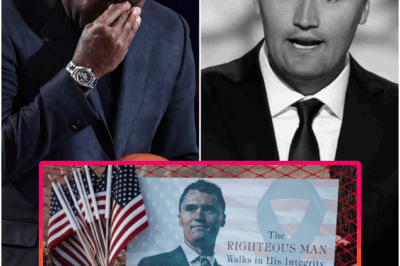
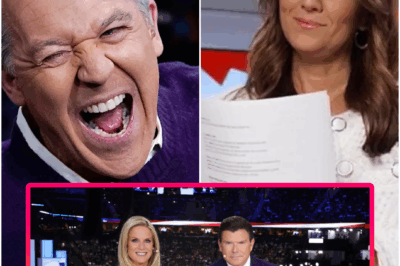
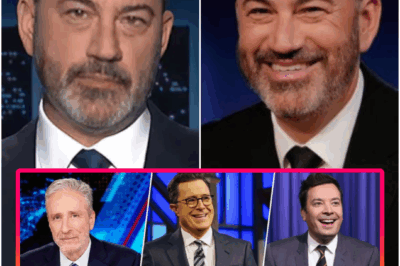
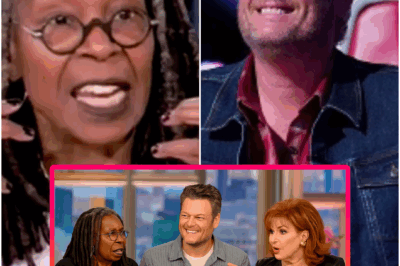
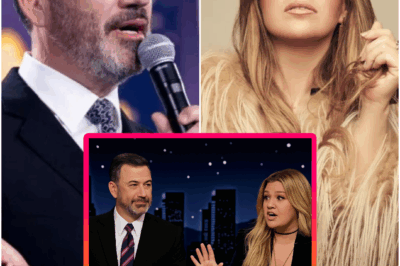
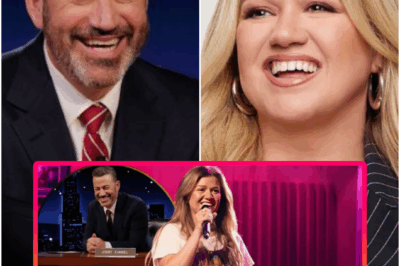
Leave a Reply